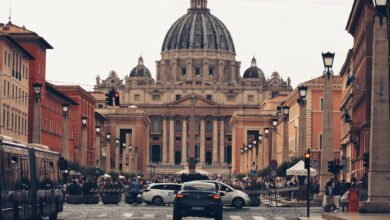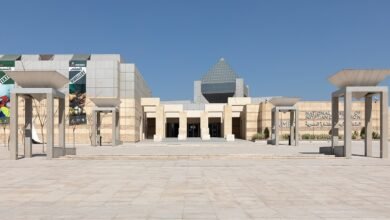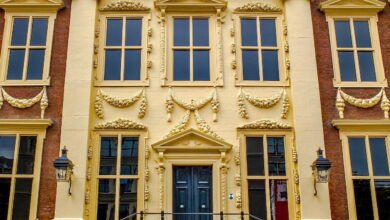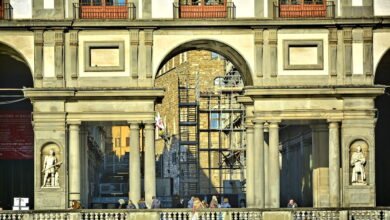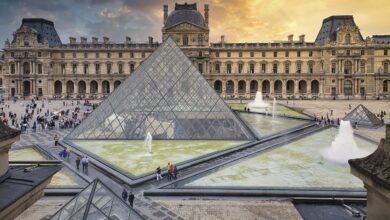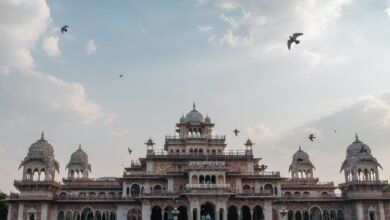Introduction
Upon entering the Apartheid Museum in Johannesburg, you may embark on a profound adventure through one of South Africa’s maximum pivotal eras. The museum gives an immersive enjoyment that supplies complete information about the darkish and tumultuous instances of Apartheid – a device of institutionalized racial segregation. This article will delve into the significance of the Apartheid Museum, highlighting its exhibits and its impact on promoting understanding, reconciliation, and social progress.
The Apartheid Era: Unraveling the Past
This phase will delve into the historical context of the Apartheid Museum in Johannesburg, its origins, and the activities that caused its establishment. From the early days of segregation to the implementation of strict legal guidelines that oppressed the bulk of South Africa’s population, we can get complete information on the apartheid device’s complexities.
The Birth of the Apartheid Museum
This section will focus on the inception of the Apartheid Museum, detailing the vision behind its creation and the efforts made to portray the history of Apartheid accurately. We will explore the museum’s architecture and design, a powerful storytelling element.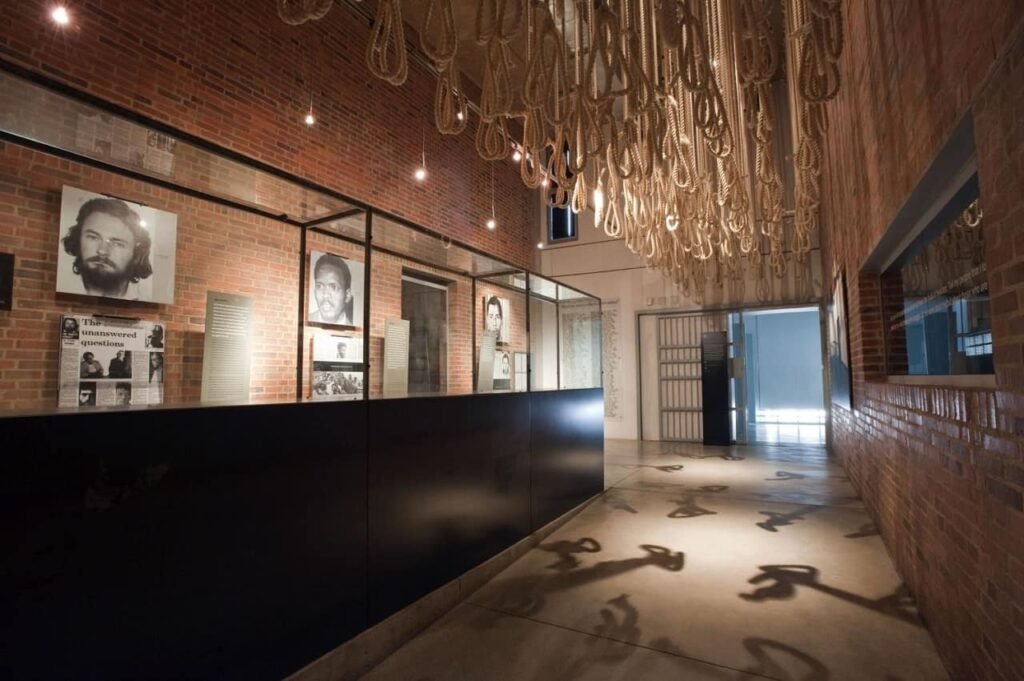
Exhibits: Reliving the Apartheid Era
The heart of the Apartheid Museum lies in its thoughtfully curated exhibits. In this phase, we can spotlight a number of the maximum impactful, well-known shows that exhibit the brutal realities of Apartheid. From interactive displays to non-public testimonies of conflict and resilience, site visitors are given a glimpse into the lives of folks who persevered during this dark period.
-
The Pass Laws and Identification
Here, we will focus on the passed laws that controlled the movement of non-white individuals and how they were constantly subjected to carrying identification papers. This section will underline the dehumanizing effects of these laws and their lasting impact on society.
-
The Sharpeville Massacre
The Sharpeville Massacre marked a significant turning point in history. This part of the article will recount the tragic events of that day and explore its significance in the quest for freedom and equality.
-
Nelson Mandela: The Iconic Leader
Nelson Mandela’s struggle against Apartheid earned him worldwide recognition. In this segment, we can have a good time with his existence and legacy, emphasizing his position in dismantling the apartheid device and unifying the nation.
The Power of Forgiveness and Reconciliation
This phase will delve into the efforts made by using South African human beings to heal the injuries of the beyond and include reconciliation. We will observe the Truth and Reconciliation Commission (TRC) and the super testimonies of forgiveness that emerged from this process.
The Impact of the Apartheid Museum on Society
The Apartheid Museum in Johannesburg is pivotal in shaping public perception and promoting social change. In this part, we can talk about the effect of the museum on-site visitors, schools, and communities. The energy of training and attention could be underscored.
A Symbol of Hope and Unity
The Apartheid Museum in Johannesburg stands as an image of wish and unity, reminding us of the electricity of the human spirit and the triumph of resilience over adversity. This phase will discover how the museum contributes to a greater inclusive and harmonious society.
Conclusion
The Apartheid Museum in Johannesburg is a tribute to the past and a beacon of hope for the future. Its exhibitions and narratives aim to educate, motivate, and advocate for greater global unity. As we leave its doors, we are responsible for remembering, learning, and actively contributing to a society that is free from discrimination.
FAQs for Apartheid Museum in Johannesburg
Can I take photographs inside the museum?
Yes, photography is allowed in most areas of the museum. However, certain sections may have restrictions to preserve the sensitivity of the exhibits.
Is the Apartheid Museum suitable for children?
While the museum deals with challenging historical themes, it is an essential educational experience for children. Parental discretion is advised for younger children, and parents can guide them through the exhibits with age-appropriate explanations.
Are guided tours available?
Yes, the Apartheid Museum offers guided tours by knowledgeable and passionate guides—the terms provide deeper insights into the exhibits and the historical context.
Can I purchase souvenirs at the museum?
Yes, The gift shop at the museum provides a range of items available for purchase, like souvenirs, books, and mementos related to South Africa's history.


